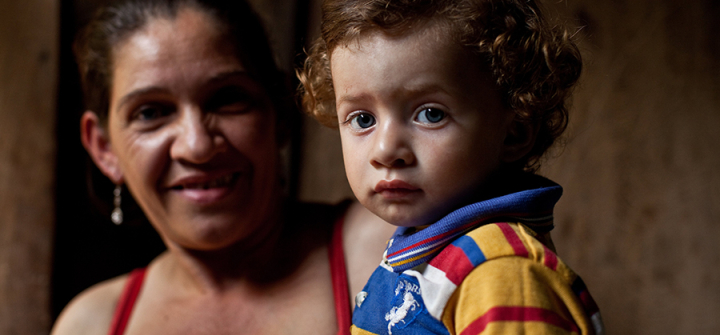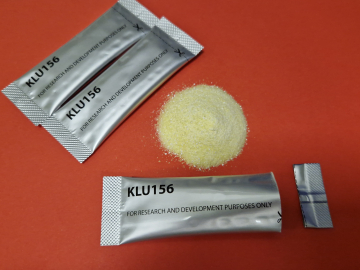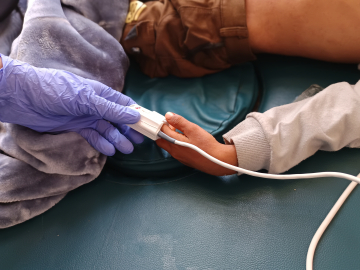We Have the Power to Save Children’s Lives. We Must Act.
By Inon Schenker & Emma Brofsky
“Poop” is not something we like to talk about publicly much less smell or see.
However, when the WHO makes a landmark decision on the matter, the American Public Health Association endorses a visionary new policy, and the Diarrhea Innovations Group launches a global campaign, it’s time to talk and advocate for the full treatment for watery diarrhea in children under age 5.
It’s a global public health priority. Acute diarrhea is the second leading cause of death for children under 5. Every minute, a child dies from diarrhea-related causes worldwide, 1,400 children die every day, 500,000 every year. There’s no excuse for so many children to die this way.
These deaths are largely preventable through inexpensive, effective treatments that can be administered at home. If every child sickened with acute diarrhea received treatment with oral rehydration solution and zinc sulfate, more than 300,000 children’s lives could be saved annually.
Yet unacceptably few children with diarrhea receive ORS—just 42% of those in prioritized countries. And fewer than 7% receive both ORS and zinc. (For more information on this issue, see a recent webinar organized by the Global Maternal and Child Health Network, an intersectoral working group of the International Health and Maternal Child Health sections of APHA.)
Inon’s been working on this issue for years. When he conceived of a multisectoral group of innovators committed to reducing the global burden of enteric and diarrheal diseases in 2015 that ultimately became DIG, he and the co-chairs had focused on scientific advancements and pharma R&D. They hadn’t envisioned supply chain innovations like co-packaged ORS and zinc. After its effectiveness became clear, PATH and 16 other leading global health institutions joined DIG in persuading WHO to include the co-packaged therapies in its new Model List of Essential Medicines for Children (EMLc), which was announced last week. Section 17.5 affirms the immediate, lifesaving benefits of ORS and zinc in pediatric diarrhea management.
Emma joined Inon and a group of dedicated GMCHN members to develop a new policy statement on scaling up the combined treatment and worked with APHA’s Joint Policy Committee toward its approval. It is being disseminated to policymakers, organizations and health ministries globally. Importantly, it calls for 4 key actions:
- A global "children's champion" needs to be appointed to coordinate U.S. and international activities in reducing mortality and morbidity from diarrhea among children under 5.
- WHO and UNICEF need to update the 2004 recommendations on diarrhea treatment in view of the persuasive new supporting research on zinc and co-packaging with ORS.
- We need a renewed global focus on child health and the promotion of aligned, well-coordinated, action-plan of multisectoral stakeholders.
- Funding for diarrhea treatment and prevention must be earmarked under the universal health coverage framework.
As public health practitioners, we see it as our role to cry out what the youngest children cannot: This powerful treatment combination must be made available to every child who needs it.
Governments, humanitarian organizations, health care providers and funders must align their policies, guidelines and practices to reduce child mortality from diarrhea to zero.
Inon Schenker, PhD, MPH, is co-director of the Ben Gurion University Global Health Summer Program, a Blockchain-Technologies for SDG attainment leader and senior global health consultant at IMPACT (Jerusalem). Emma Brofsky, MSPH, is a steering committee member of APHA’s GMCHN and a co-chair of the Communications Committee for the Maternal and Child Health Section.
The authors would like to thank the GMCHN Steering Committee and its chairs Laura C. Altobelli and Judy Lewis as well as APHA policy co-authors: Victoria L. Baker, Kathryn Mishkin, Rebecca O. Shasanmi Ellis, Alain Blaise Tatsinkou, Julie Bergman, Evelyn Cherow, Olaoluwa Fajobi, Ifeyinwa Udo, Debra Jackson and Jason Paltzer.
Ed. Note: Join the tens of thousands of subscribers who rely on Global Health NOW summaries and exclusive articles for the latest public health news. Sign up for our free weekday enewsletter, and please share the link with friends and colleagues.
Sixta Bucardo holds her 18-month-old son Llilmer Parrilla Bucardo in Leon Province, Nicaragua on July 29, 2009. Oral rehydration solution saved his life. (Image: Brent Stirton/Getty Images For Save the Children)




